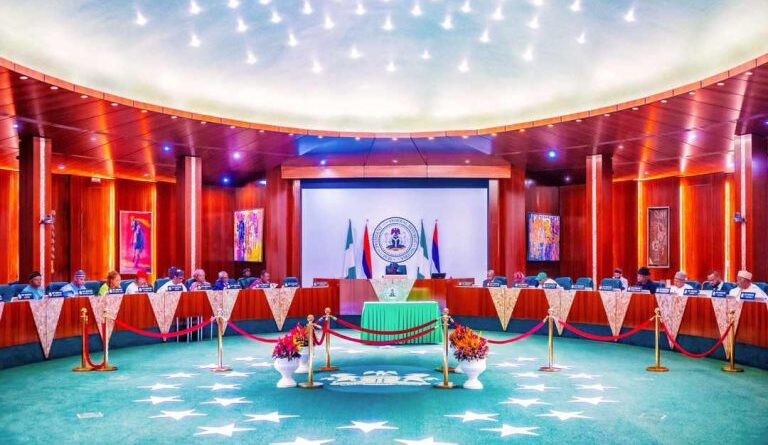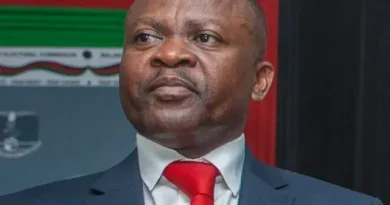Executive Order on medicaments: FG yet to implement 2 months after
LAGOS — As Nigeria’s pharmaceutical industry eagerly awaits the implementation of the Presidential Executive Order aimed at reducing the cost of essential medicines, and generally revamping the health sector, delays in the implementation process have pushed back the timeline for its takeoff.
In June, President Bola Tinubu signed an Executive Order to strengthen Nigeria’s health system by exempting pharmaceutical machinery, equipment, goods, and accessories from tariffs and excise duties, reducing production costs and making healthcare products more affordable.
But two months after the pronouncement, checks by Vanguard revealed that the cost of items in the key categories of health equipment covered by the Executive Order remained prohibitively high.
Among these are pharmaceutical medications, medical devices such as diagnostic imaging machines, laboratory equipment, surgical instruments, ECG machines, ventilators, syringes, needles, gloves, medical dressings and diagnostic kits for malaria, HIV, etc.
News HQ gathered that while the government set a 30-day deadline for development of a harmonisation implementation framework with the ministries of Finance and Industry, Trade, and Investment, the exact timeline for take-off of the Executive Order remains uncertain.
On when Nigerians can expect to start seeing the benefits of the Executive Order, Minister of State for Health and Social Welfare, Dr Tunji Alausa, said the government is working diligently to expedite action on the framework that will guide relevant agencies in operationalising and implementing the Executive Order.
What govt is doing, by AlausaAlausa said: “We are developing a harmonisation implementation framework with the Ministers of Finance and Industry, Trade and Investment.
“Government agencies involved include the National Agency for Food and Drug Administration and Control, NAFDAC, the Federal Inland Revenue Service, FIRS, the Standards Organisation of Nigeria, SON, and the Nigeria Customs Service, NCS.
”He said the government is moving quickly to develop the harmonisation implementation framework within 30 days, adding that once completed, the Executive Order will go into effect quickly.
“We have met with the Attorney-General of the Federation about the need to move quickly on this. We are working night and day to get this effected so that Customs will start implementing the process as well as the FIRS. We are setting up a technical working group on this implementation framework so that the Executive Order will take effect immediately.
Worried by the apparent lack of progress as the 30-day window has elapsed, players in the health industry have expressed concerns about the potential impact of the delays on the cost of medications and the livelihood of Nigerians even as there is uncertainty regarding the immediate effects of the executive order on drug prices and are urging the government to step up action on the policy.
Delay not worth it, people are dying — Oladigbolu
On his part, the Immediate past National Chairman of the Association of Community Pharmacists of Nigeria, ACPN, Pharm Wale Oladigbolu, said the delay in implementation of the Executive Order is not worth it because people are dying, even as prices of drugs have continued to spiral up.
“We haven’t seen the impact of the Executive Order, that’s at the down end where I practice. Prices of drugs at the retail stores are still very high and we see a lot of people not being able to afford the treatment that they need. Health insurance which should have helped the people is not working in the Nigerian context.“
A whole lot of people who are in the informal sector are not covered by health insurance, so the prices of medicine are high. Affordability is not there, and people’s incomes are strained. And when I say strained, I mean strained. They need to choose between food with high costs, fuel with high costs, and drugs with high costs. So they need to juggle those factors. So people only come to the pharmacy for purely essential things.
So things like high blood pressure that does not have a warning, a lot of hypertension patients are dropping their medicines, especially those who have poor health education, they have dropped. They see hypertension as not troubling, so you see a lot of non-adherence to medication because of the high cost of medication. High cost of food. And indeed, high cost of work.“
The delay is not worth it because people are dying. We have not seen an impact or drop in the cost of medicines in Nigeria, so the Executive Order has not had any impact. This speaks to what the Federal Government should be doing.
“Before you issue an order, you need to check the baseline, you need to do a survey, conduct the baseline. And when you issue an order, two months down the line, you need to conduct another survey to compare the former with the new, and that has not been done, but I can tell you wholeheartedly that we haven’t seen an iota of drop in drug prices in this country.”
Implementation details must be properly worked out — Ifeanyi
Responding to the development, the National President of the Association of Medical Laboratory Scientists of Nigeria, AMLSN, Dr. Casmir Ifeanyi, said while the concerns about the delay are not misplaced, the details of the implementation of the Executive Order should be properly worked out.Ifeanyi, an Infectious Diseases/Public Health Expert, noted that for effectiveness, the government should put turn-around time when Nigerians can begin to see outcomes.




